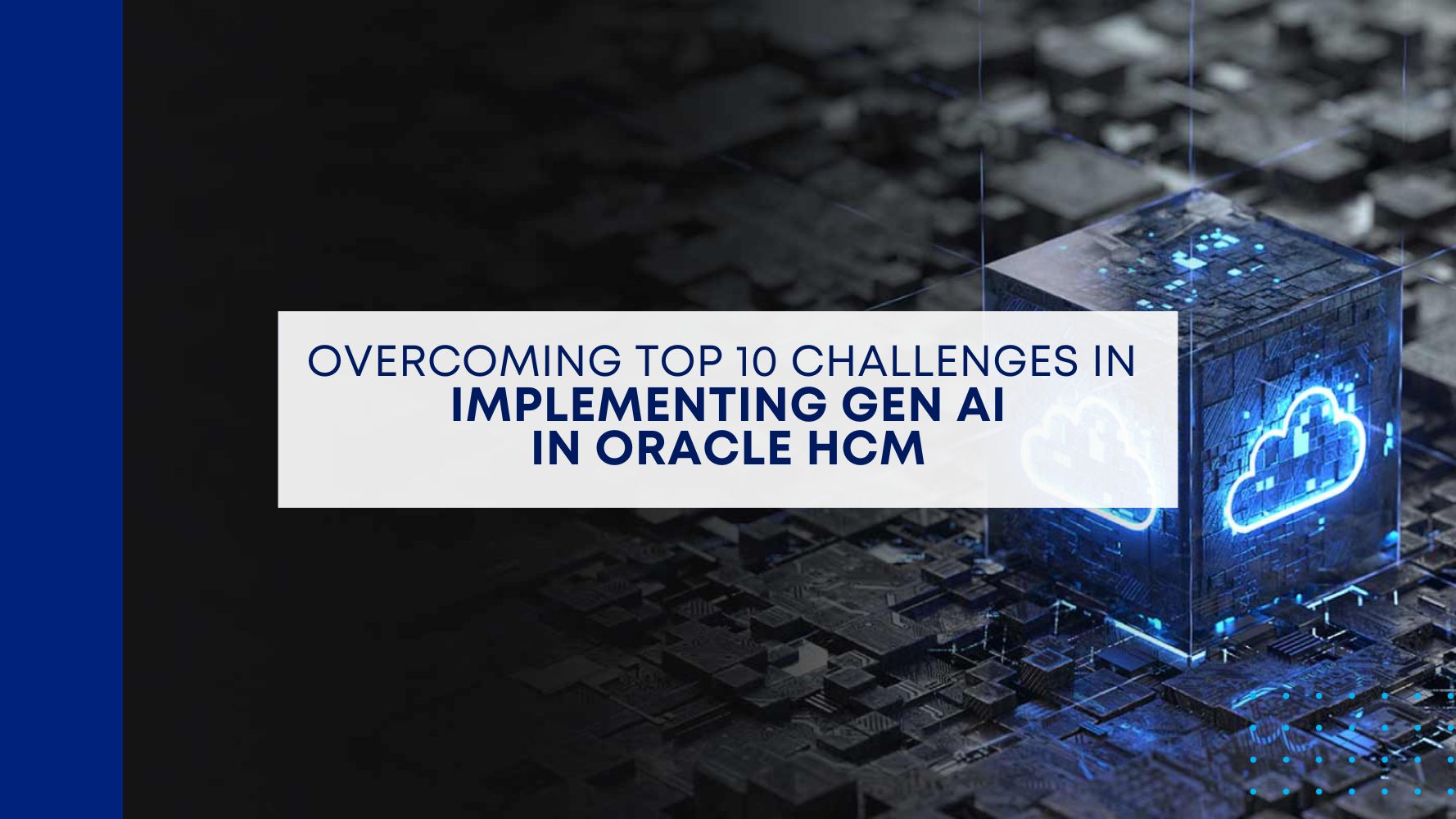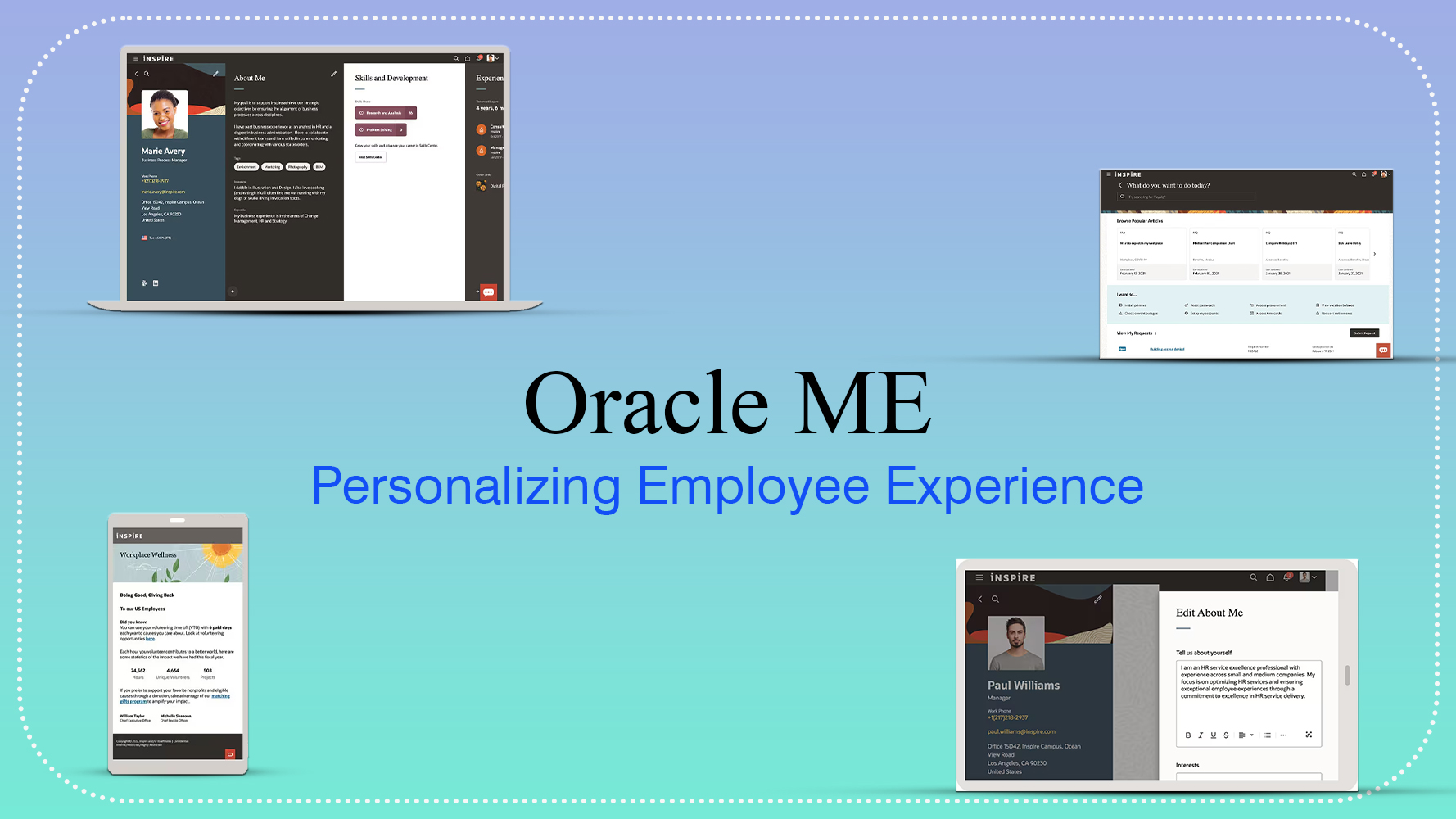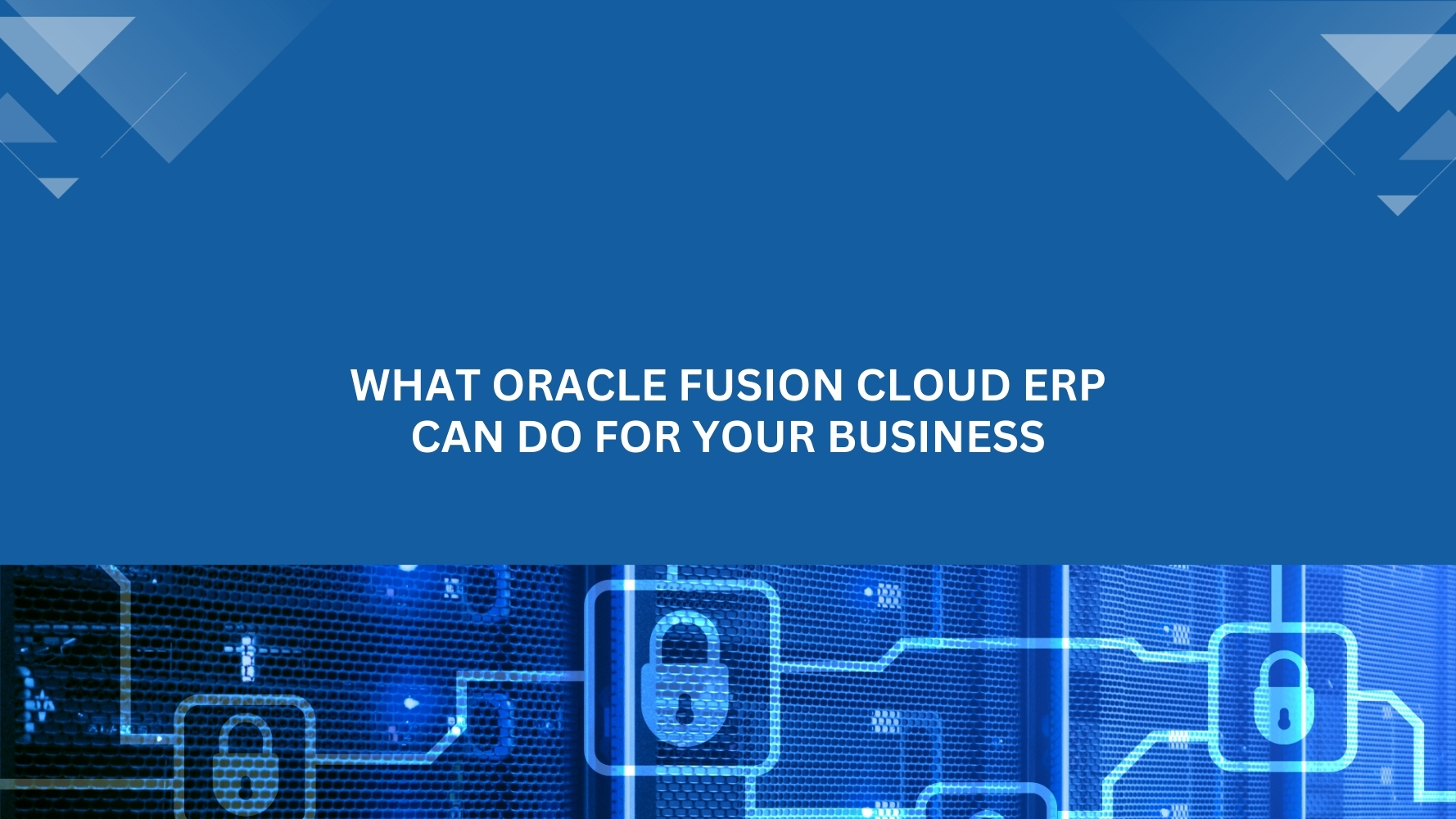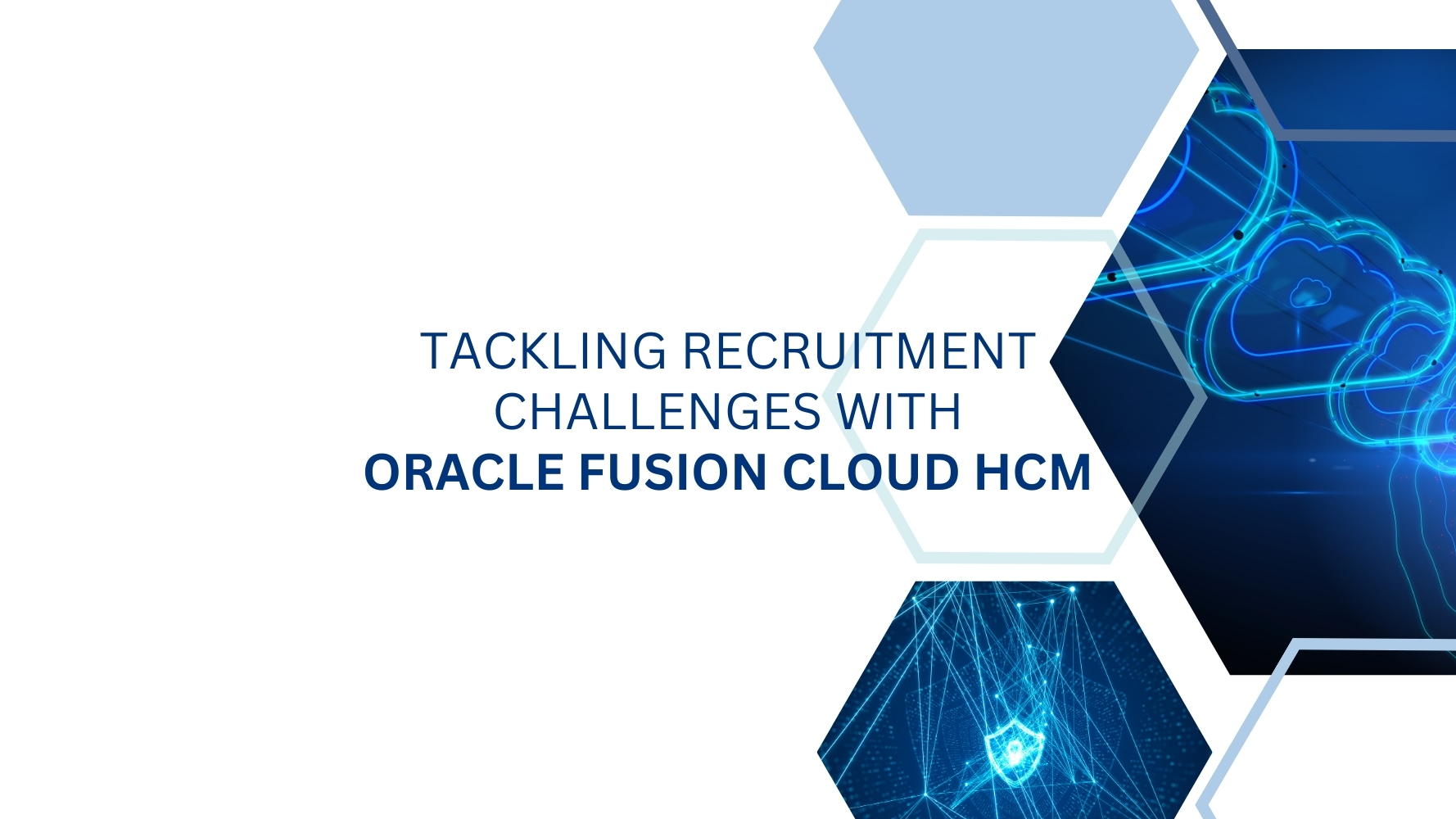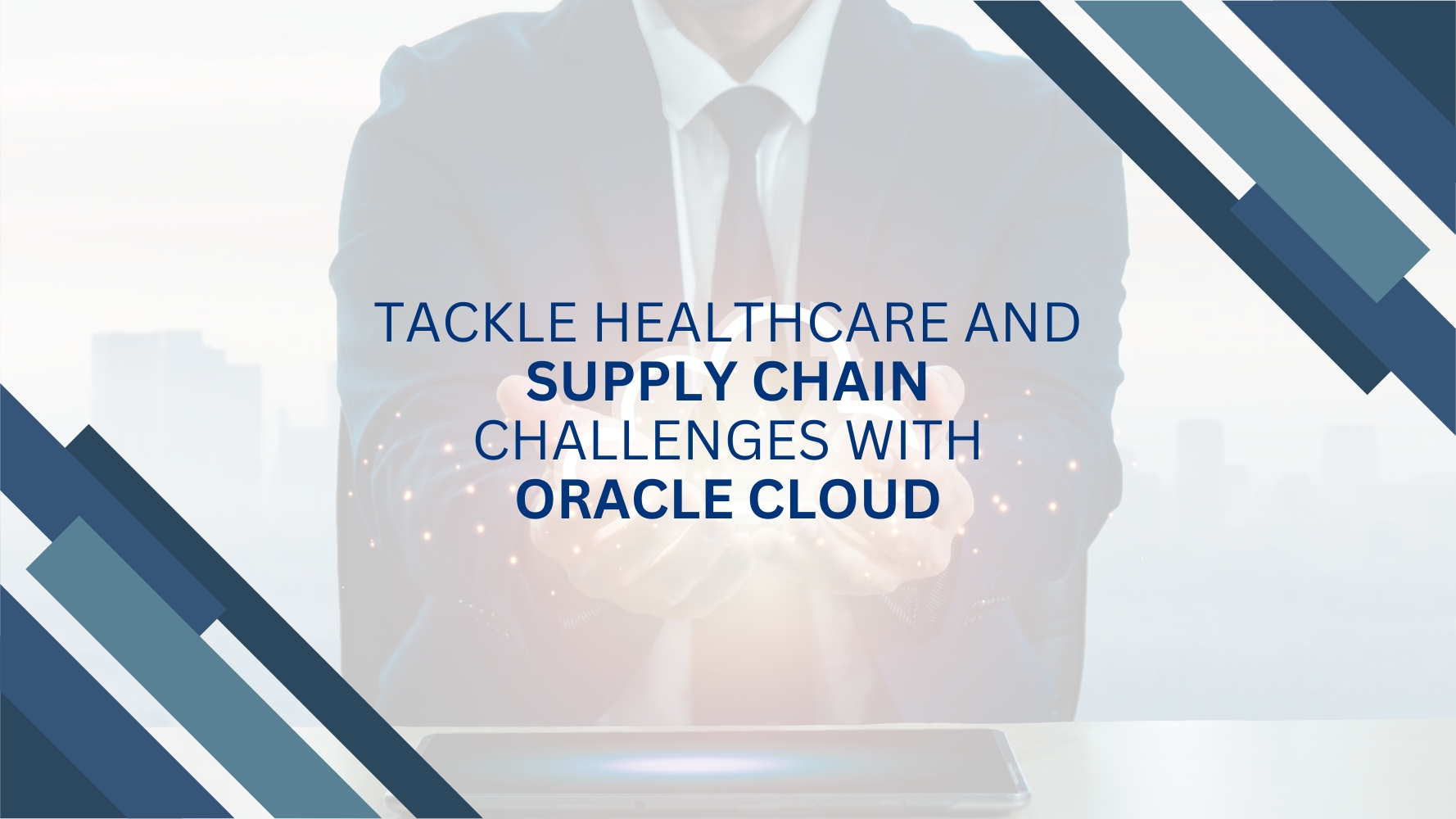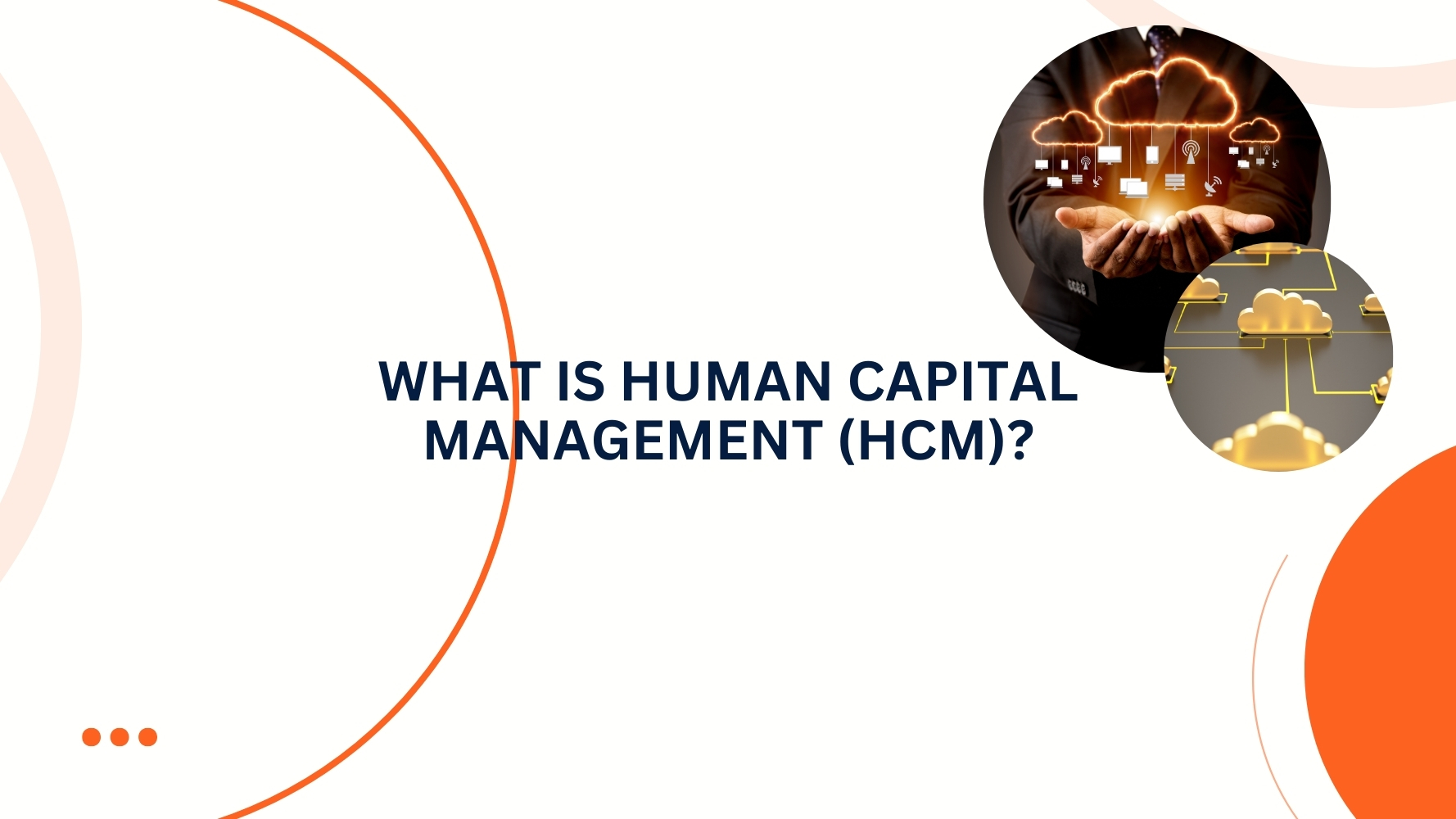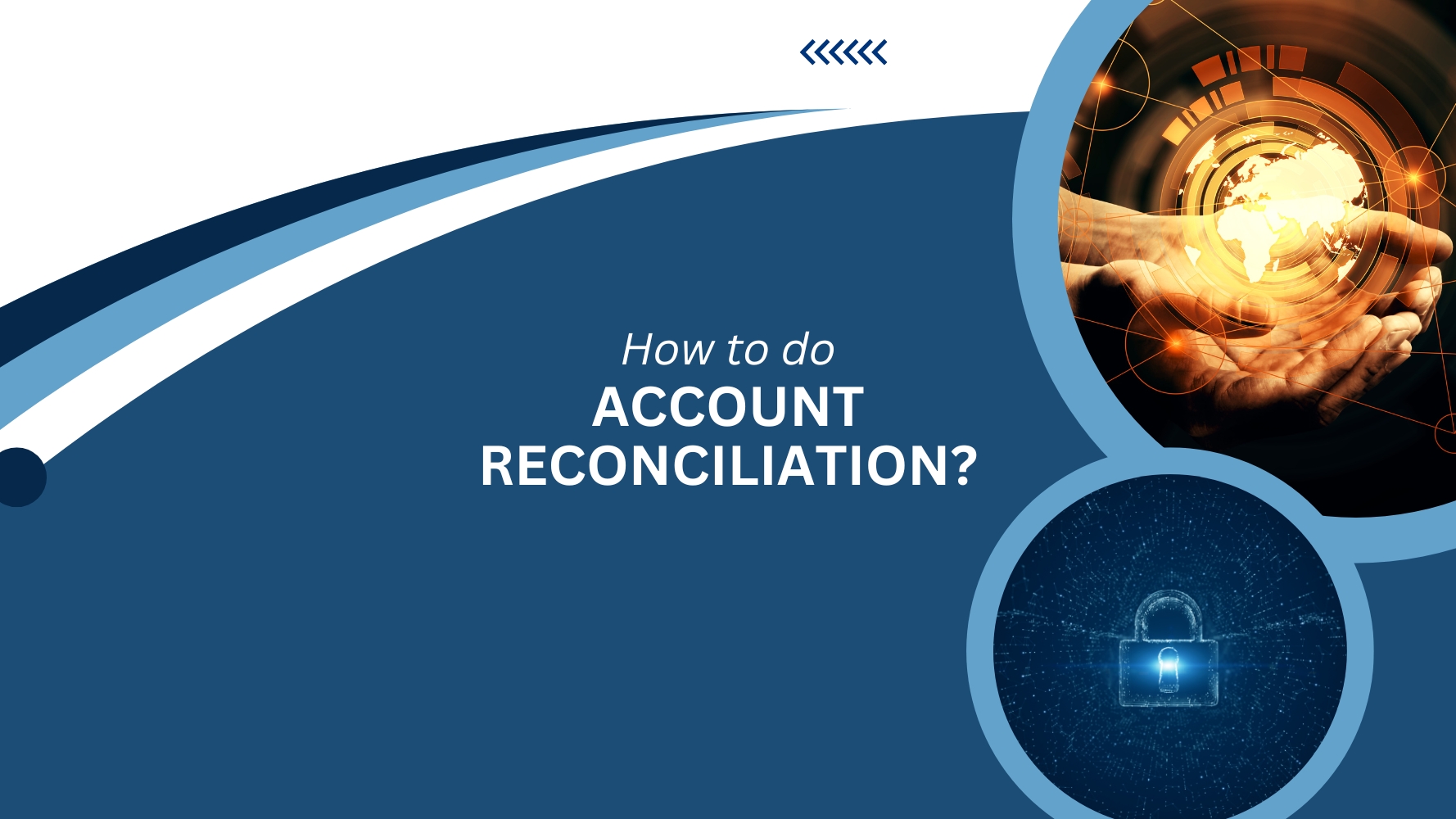The convergence of Generative AI (Gen AI) and Human Capital Management (HCM) is ushering in a new era of workforce optimization. Oracle Cloud HCM, with its comprehensive suite of tools and data, provides a fertile ground for AI innovation. However, the journey to harnessing the full potential of Gen AI in HCM is fraught with challenges. This blog delves into the top ten hurdles organizations encounter and provides practical strategies to overcome them.
The Promise of Gen AI in Oracle HCM
Before addressing the challenges, it’s essential to understand the transformative power of Gen AI in Oracle HCM. By integrating AI capabilities into Oracle Cloud Applications, organizations can streamline HR processes, enhance decision-making, and elevate employee experiences. For instance, Oracle Analytics Cloud, powered by Gen AI, can uncover hidden patterns in vast HR datasets, leading to data-driven insights. Moreover, Oracle Cloud Infrastructure provides a robust foundation for deploying and scaling AI models. Gen AI can be leveraged to automate routine HR tasks, improve talent acquisition, enhance employee engagement, optimize workforce planning, and drive innovation.
Top 10 Challenges in Implementing Gen AI in Oracle HCM
1. Data Quality and Privacy:
High-quality data is the cornerstone of any successful AI implementation. In the context of Oracle HCM, this means accurate, complete, and consistent employee data. Unfortunately, legacy systems, manual processes, and data silos often compromise data quality. Precise only or complete data can lead to biased AI models and erroneous decisions. Furthermore, stringent data privacy regulations like GDPR and CCPA add complexity, requiring organizations to balance data utilization with employee privacy. To overcome this:
- Prioritize data cleansing and enrichment: Identify and rectify errors, inconsistencies, and missing data.
- Establish data governance: Define clear data ownership, access controls, and usage policies.
- Adopt privacy-enhancing technologies: Utilize differential privacy and federated learning.
2. Bias and Fairness:
AI models are susceptible to inheriting biases present in the training data. This can lead to discriminatory outcomes, damaging an organization’s reputation and employee morale. For example, a biased AI model might unfairly favor certain demographic groups in hiring or promotions. To mitigate this:
- Ensure diverse and representative datasets: Train models on data reflecting workforce diversity.
- Implement regular bias audits: Monitor models for unintended biases.
- Promote explainable AI: Develop models that can explain their decisions.
3. Resistance to Change:
Introducing AI into Oracle HCM can evoke resistance from employees and managers who are accustomed to traditional processes. Fear of job displacement, concerns about data privacy, and skepticism about AI’s capabilities can hinder adoption. To foster acceptance:
- Communicate the benefits clearly: Emphasize how AI can improve efficiency and create new opportunities.
- Provide comprehensive training: Equip employees with the knowledge to utilize AI tools.
- Involve employees in the process: Seek input and build ownership.
4. Technical Expertise:
Building and deploying AI models demands specialized skills in data science, machine learning, and AI engineering. Many organizations need more in-house expertise. To bridge this gap:
- Partner with AI experts: Collaborate with external consultants or AI service providers.
- Invest in talent development: Provide training and upskilling opportunities.
- Leverage low-code/no-code platforms: Utilize platforms that simplify AI model development.
5. Integration with Oracle HCM:
Integrating AI into the Oracle Cloud HCM ecosystem requires a deep understanding of the platform’s architecture and APIs. Data extraction, transformation, and loading (ETL) processes and real-time data integration can pose significant challenges. Additionally, ensuring seamless integration between AI models and HCM workflows is crucial for optimal performance. To address this:
- Utilize Oracle Cloud Integration: Leverage pre-built connectors and integration capabilities.
6. Model Interpretability and Explainability:
Understanding how AI models reach decisions is crucial for building trust and ensuring accountability. Techniques like LIME and SHAP can demystify complex models, providing insights into their reasoning and identifying potential biases. To address this:
- Employ explainable AI techniques: Demystify black-box models and provide insights into their reasoning.
7. Ethical Considerations:
The integration of AI in HR necessitates a robust ethical framework. Addressing concerns about data privacy, algorithmic bias, job displacement, and transparency is paramount. To ensure responsible AI:
- Establish ethical guidelines and frameworks: Define principles for AI development and deployment.
8. Talent Acquisition and Retention:
Attracting and retaining AI talent is a growing challenge. To address this:
- Invest in talent development: Create a strong AI team through training and development.
- Offer competitive compensation and benefits: Attract and retain top AI talent.
9. Scalability and Performance:
AI models can be computationally intensive, requiring robust infrastructure and efficient algorithms. To address this:
- Optimize models for performance: Ensure efficient algorithms and processing.
- Leverage cloud infrastructure: Utilize scalable cloud resources.
10. Return on Investment (ROI):
Measuring the impact and ROI of AI initiatives can be challenging. To address this:
- Define clear metrics: Track key performance indicators to measure AI’s value.
- Demonstrate the value of AI investments: Showcase the positive impact of AI initiatives.
Conclusion
Overcoming these challenges is crucial for unlocking the full potential of Gen AI in Oracle HCM. By addressing data quality, bias, resistance to change, technical expertise, integration, interpretability, ethics, talent, scalability, and ROI, organizations can create a solid foundation for AI-driven HR transformation. Tangenz, with its deep expertise in Oracle Cloud Applications, including Oracle HCM, can be your trusted partner in this journey. Our Oracle experts can help you navigate these challenges, implement effective AI solutions, and achieve your HR goals.
Connect with our Oracle HCM experts at Tangenz for all your organization’s Oracle Cloud HCM implementation queries.
